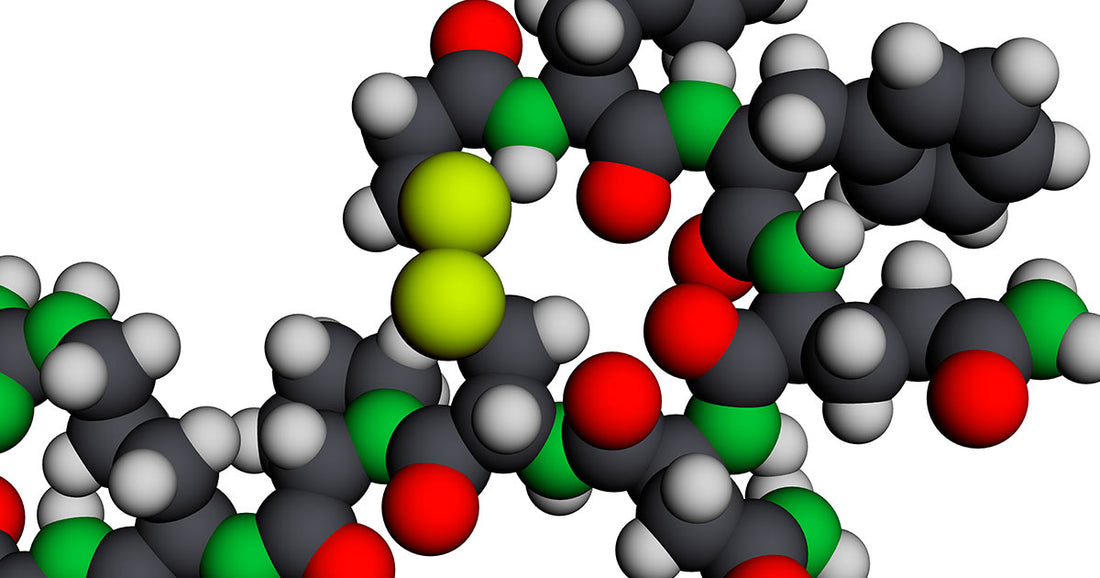
What Is Vasopressin: A Powerful Nootropic
Share

What Is Vasopressin: A Powerful Nootropic Supplement
Vasopressin is considered one of the most potent nootropics. You can utilize them in a variety of different ways. In this article, we will go over the many benefits and side effects of vasopressin.
![]()
This article has been medically reviewed by Dr. Charles Penick, MD 
Where to Buy Vasopressin Supplements
What Is Vasopressin?
Vasopressin is a nootropic and pituitary hormone produced naturally in the body. Vasopressin is connected with the hormone oxytocin, both evolving from the hormone vasotocin. When used as a nootropic, it can help enhance brain functions, including memory and cognitive functions. In addition, it plays a hormonal role in preventing water loss in the body, throughpromoting water retention in the kidneys.
Also known as an antidiuretic hormone, it helps to regulate the circadian rhythm, which controls the periods of wakefulness and sleepiness in 24 hours. Vasopressin occurs naturally in the body, but artificial varieties are added to supplements or used as medications used primarily by physicians.
How Does Vasopressin Work?
Vasopressin works to prevent water loss in the body by decreasing urine output while simultaneously helping the kidneys reabsorb water into the body. It also helps raise blood pressure to healthy levels by narrowing blood vessels. (This is applicable in emergency room situations where blood pressure levels are too low). In addition, it works as a neurotransmitter, by controlling thermoregulation and adrenocorticotrophic hormone release (ACTH). This process plays a role in how the body responds to stress. When compared to other neurotransmitters, the response time is slower, but its effects last longer.
Vasopressin can help stimulate the production of other neurotransmitters as well. Both men and women produce vasopressin naturally, but men may feel its effects at a greater rate due to its stronger interaction with testosterone, the male sex hormone.
Benefits of Vasopressin
Vasopressin is primarily stored in the pituitary gland. It’s released into the kidneys and bloodstream as needed. In addition to being used as a supplement,doctors can prescribe it in medications.
Benefits and uses of vasopressin include the following:
- It helps clear brain fog
- Helps increase focus
- Improves memory and alertness
- Used to treat diabetes insipidus
- Used in emergency settings to raise blood pressure of adults in shock
Note: alcohol consumption can decrease the effectiveness of vasopressin.
Side Effects of Vasopressin
When taken as a medication or supplement, vasopressin could cause various side effects if used at high doses. The most common side effects include the following:
- Nausea
- Abdominal cramps
- Dizziness
- Chest pain
- Fever
Several factors can increase the risk of a person having side effects from taking vasopressin. Individual factors include genetics, kidney function, and gender. Other factors that influence potential side effects include diet, hydration levels, and other medications.
Drinking 1-2 glasses of water could help ease side effects in some instances. Side effects of taking vasopressin are usually mild and tend to decrease as a person’s body becomes acclimated to receiving the hormone. However, consult with a doctor if side effects worsen or persist after several days.
Where to Buy Vasopressin Supplements
You can find vassopressin at most health food stores as a nootropic brain support supplement.
Final Thoughts
Vasopressin supplements can help cognitive function and memory. Many users believe the nootropic can increase memory and improve recall times for users of all ages. Vasopressin is considered one of the most potent nootropics. Asa result, take caution with high dosages and only take sparingly. Consult with your doctor before taking vasopressin and alert them to any severe or lingering side effects.
Medical Disclaimer: This article is based upon the opinions of Revelation Health. The information on this website is not intended to replace a one-on-one relationship with a qualified health care professional and is not intended as medical advice. It is intended as a sharing of knowledge and information from the research and experience of Revelation Health and associates. This article has been medically reviewed by Dr. Charles Penick, MD for accuracy of the information provided, but Revelation Health encourages you to make your own health care decisions based upon your research and in partnership with a qualified health care professional.
